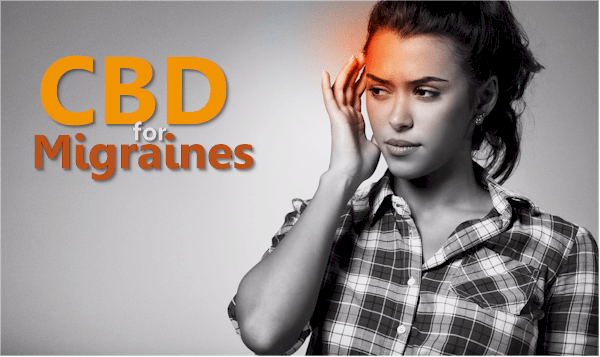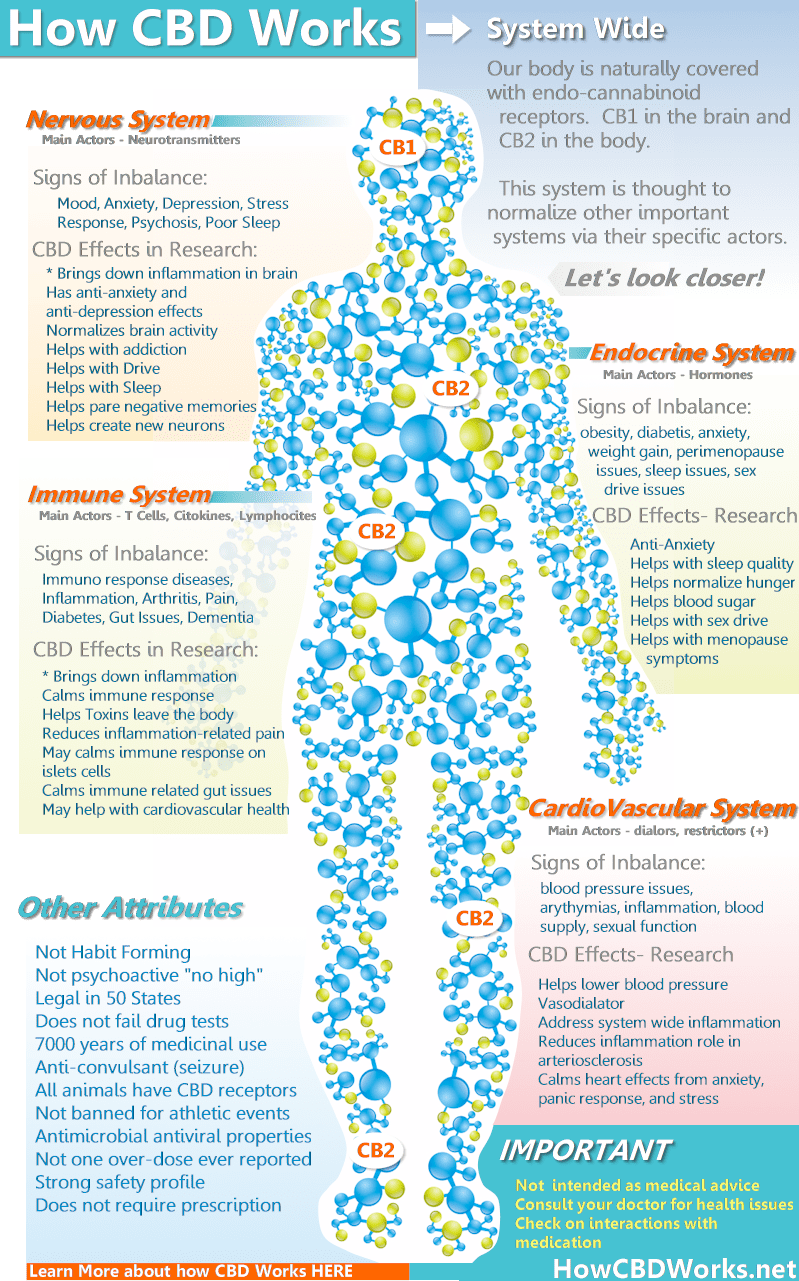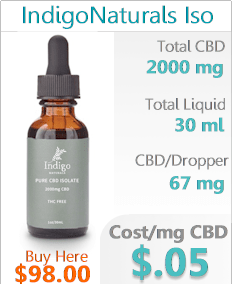CBD Research - How CBD Works

HOW DOES CBD AND MAGNESIUM WORK FOR MIGRAINES
I had my first one at age 12.
I'll never forget it.
I went with a friend and their family to this lake where there was a giant playset built right on the bank of the lake.
The memory is hazy (being a few decades old) but it was very cool.
Suddenly, I had numbness in my left hand.
This slowly spread up to my lips and tongue.
The family I was with panicked but I don't remember being particularly scared.
After 5-10 minutes, my vision became affected...like looking through a prismed tunnel.
My thought process became muddled and slow.
Speech was affected slightly.
Then came the pain!
Throbbing, intense pain at the base of my neck.
I just wanted to sleep.
I would learn after the next 20 years exactly how this pattern would unfold and what to expect.
Migraines would hit me a few times a year for most of my life.
Too much or too little sleep seemed to lead to them.
Certain foods appeared to be triggered (you must read the section below about the type of CBD to take...90% of the brands out there may be causing more harm by pushing "full-spectrum")
It was all just guesswork.
My usual migraine usually lasted a day but I had to sleep it off to get through.
The "hangover" would last a few days if not a week though.
I tried the main medication available and it sent me into week-long migraines.
One of the scariest weeks of my life!
I worried I wasn't going to come out of it.
I can now say that personally, I have found a way to avoid migraines altogether and prevent them when I feel the telltale "weirdness" coming on.
It's two-fold.
Magnesium Glycinate (or any of the ‘ates" but Glycinate works best) and CBD (only Isolate...we'll explain below).
We'll look at both because if I can help one person avoid the suffering of a migraine, then that's payment for me finding a way out of that mess.
Most importantly, we'll see what research is saying on the matter.
You can jump to any section here:
- Current research on what really causes migraines
- The endocannabinoid system and migraines
- Research and studies on CBD and migraines
- Best CBD for migraines
- How much CBD to take for CBD
Let's get started.
Current Research On What Really Causes Migraines
12%
That's the estimated percentage of people in the US that suffer from migraines.
Count me as one of them!
Let's look at we know about them and there are some important clues there:
- First, women are 2 times as likely as men to suffer from migraines.
- Menstrual migraines are a known thing and occur during hormone flux within the cycle
- Most common onset of migraines is during puberty (hormone flux)
- Migraines tend to improve in the '50s and '60s
All these have one thing in common.
Hormonal flux.
It's interesting that you can go the first 10-20 years of your life and never experience a migraine.
What changes is our hormonal balance?
This also shows during the monthly cycle woman have.
Take a look at the hormone levels during a cycle.
It's a series of very extreme waves all peaking at different times!
A highly choreographed dance of very powerful chemicals.
Of course, all this flux calms down after menopause (hint hint – 50's and 60's).
So hormones are our first big clue as to what is going on with migraines.
The 2:1 ratio between women and men is the clincher.
Our primary difference is our hormonal makeup and pathway.
It's not just the presence of hormones though.
It's the CHANGE or flux that matters.
It's best to think of it this way.
Hormonal flux IS stress in the body.
Almost every system we have in our body and brain has tethers to our hormones.
- Neurotransmitter. Intimately.
- Immune system. Yes.
Hunger. Appetite. Mood. Blood pressure. Directly under the control of hormones.
- The chemical that makes you feel hungry is a hormone.
- The chemical that makes you feel full is a hormone.
Secondly, let's look at the newer theory of nutrient exhaustion.
The two primary candidates are magnesium and methylated vitamin b12
It's easy to fall down the rabbit's hole on this so we'll stay somewhere near the surface.
First, one theory is that magnesium exhaustion in the brain sets off a cascade effect that triggers migraines.
This is especially true for people who receive visual auras with migraines.
A brand new study pointed to potassium channels in the brain called Tresk channels and migraine:
These are basic channels that move ions in and out of our neurons.
Magnesium supports this channel:
Let's connect the dots.
Stress depletes magnesium in the body (as does alcohol, birth control, many medications, and more).
Some people may have a genetic predisposition to this feedback loop.
Either way, the link is established in research
Magnesium's role in migraine pathogenesis is well-described, with deficiencies known to promote cortical spreading depression, alter nociceptive processing and neurotransmitter release, and encourage the hyperaggregation of platelets, all major elements of migraine development
It's hard to measure the "available" magnesium in the body.
Once this was taken into account, we can see the correlation with migraines:
A study measuring ionized magnesium levels in 40 patients during an acute migraine attack found that 50% had levels below 0.54 mmol/l (normal adult range 0.54-0.65 mmol/l)
More importantly (if you get migraines):
administration of 1g of magnesium sulfate was most effective in those with low ionized magnesium, with 86% of patients reporting sustained pain relief over 24 hours in those found to have low serum ionized magnesium, while this was the case in only 16% of patients with normal levels.
Ultimately, magnesium is rapidly used up in periods of stress:
Hormonal shifts are very stressful to the body in a way that is just as powerful (if not more) than bad traffic, an angry boss, or crying baby!
Quite simply...stress eats up magnesium.
You can look at all the effects in detail through the links above in terms of magnesium, stress, and migraines.
Finally, Folate (not folic acid!) and B12. Methylated that is.
If this is new to you, get excited.
A good percentage of the world's population is thought to have an MTRR or MTHRF genetic mutation.
Again, count me as one!
It just means that you don't process folate or B12 well.
I say just but take a look at what B12 does in the body!
Vitamin B12 is a nutrient that helps keep the body's nerve and blood cells healthy and helps make DNA, the genetic material in all cells.
Okay...so genetic material in all cells.
That might be important!
The medical field has finally come around to testing for this (welcome to the party, Disco).
It just means you need to supplement with methylated B12 and/or methylated folate (available everywhere now).
Let's look at MTHFR (methylated folate) which is important.
The connection with migraines...
MTHFR genotype is associated with specific clinical variables of migraine including unilateral head pain, physical activity discomfort and stress.
The net effect.
I personally swear to the magnesium effect.
If I get really run down and start to feel the stirrings of a migraine, I take a Magnesium Glycinate and it goes away!
Keep in mind that before I knew of magnesium, NOTHING would stop the steady rollout of my migraines.
Nothing.
I had to go to a dark room and suffer through it.
I take Magnesium daily now knowing that I burn through it (either due to genetics or stress).
Two of our favorite resources:
They are REQUIRED reading and point to the new direction of healthcare...avoiding illness to begin with!
Finally, there's the tie in with the gut (like everything else!).
One example from this new front of healthcare...
Migraine and tension-type headaches may share genetic links with irritable bowel syndrome (IBS)
Now, let's get to the other piece...CBD.
First, a pitstop to the ECS (keeping with the alphabet soup approach).
The Endocannabinoid System And Migraines
Some key clues came out above.
Migraines are tied to:
- Changes and/or imbalances in hormones
- Deficiencies in key nutrients
Let's introduce the great balancer...the endocannabinoid system (ECS).
Every animal on this planet has this system and it works remarkably similarly across this wide net of life.
It appears to go back to about 600 million years.
It's relatively new to the medical field (try asking your doctor about it for laughs) but research shows it's integral to balancing 3 key systems:
- Endocrine system (hormones)
- Neurotransmitters
- Immune system (inflammation, protection from outside intruders, and repair)
These three systems are really at the heart of most modern diseases.
They're also the most under assault from our modern world.
Check out How CBD Works or Beginner's Guide for more on this.
Here's a quick vision of the system:

So...what does this have to do with migraines?
Plenty.
Intriguing research is pointing to dysregulation (fancy word for not working properly) in the ECS may be a root cause of migraines.
First some anatomy.
There a system called the trigeminovascular system at the base of your skull.
It basically provides blood flow and supply for the brain!
It's been associated with migraine headaches and the sudden pressure drop and then rebound increase that worsens the symptoms.
Anandamide is our largest naturally occurring cannabinoid by volume.
A cannabinoid is a chemical that operates in the ECS just like CBD.
Researchers first noticed an interesting correlation:
Clinical observations, in particular, show that the levels of anandamide (AEA)-one of the two primary endocannabinoid lipids-are reduced in cerebrospinal fluid and plasma of patients with chronic migraine (CM), and that this reduction is associated with pain facilitation in the spinal cord.
This doesn't establish cause and effect but clearly there's a correlation.
It definitely speaks to the symptom severity of migraines.
Since part of the migraine question is vascular, this is not surprising since the ECS is tasked with managing the "tone" of brain vascular muscle (hence the blood pressure effect of CBD).
This is the lining of muscle in our arteries or veins that can constrict or relax as needed (when healthy that is).
The ECS is showing results that it is intimately tied into the different pathways that migraines operate in.
For example, nausea and vomiting are common with migraines.
The ECS is tasked with balancing this pathway
Another key pathway is the serotonin 3 pathways which the leading migraine medication works on.
The ECS directly helps to balance this pathway with the keyword being balance.
Triptans (most commonly prescribed meds for migraines) and many antidepressants (SSRI's, etc) hammer this system generally to boost serotonin availability.
The side effects can be numerous and very serious.
The ECS directly affects this same pathway as shown here (but without the nasty side effects):
Endocannabinoids in the Brainstem Modulate Dural Trigeminovascular Nociceptive Traffic via CB1 and Triptan� Receptors: Implications in Migraine
It was a triptan consequently, that sent me into a 1-week migraine.
Learn all about how the ECS works with the serotonin pathway at our CBD and depression article.
Balance. Not boost.
In brain scans (PET), abnormal levels of different endocannabinoids (endo means ones our body naturally produces "inside") are tied to migraine activity.
Links to all these studies can be found here:
The ECS is intimately involved in the pain sensitivity associated with migraines as well.
Keep in mind that Anandamide is one of the brain's key anti-inflammatory agents.
Maybe more importantly for migraine sufferers, anandamide calms the changes in blood vessels that cascade into migraine:
AEA indeed inhibits the neurogenic dural vasodilatation, as well as CGRP-induced and NO-induced dural vessel dilation
CB1 receptors (the points where the ECS does its work) are also tied to the opposite direction of vascular change as well:
The CB1 receptor antagonist, AM251, reversed this inhibitory activity, suggesting that CB1 receptors may be implicated in the relationship between headache and dural blood vessel dilation and migraine mediators.
So...both direction.
We've used the term "wave" a few times when describing migraines.
Sufferers will know what we mean by this.
There are triggers, initial signs, and then it spreads into a full-blown migraine.
This actually happens in the chemistry and electrical systems of the brain!
It's called Cortical Spreading Depression.
The scientists don't mean depression in common sense.
Think of it as a weather cold depression.
An area of spreading electrical and chemical activity that ripples through the brain.
That's the point the migraine goes full tilt!
This may be the most important point...the point of no return.
Can the ECS impact this process?:
HC (1-20 microM) dose-dependently suppressed CSD amplitude, duration, and propagation velocity.
This is big. It basically ties the ECS function to the migraines progression in our brain.
We could go and on as there is plenty of research (see summary link above).
We'll end with this before jumping to CBD.
What happens if they boost anandamide prior to an induced migraine?
It reduced the migraine attack!
The study confirms that a dysfunction of the endocannabinoid system may contribute to the development of migraine attacks and that a pharmacological modulation of CB receptors can be useful for the treatment of migraine pain.
You can find out how the ECS works with other key systems we mentioned above at the following:
CBD and Inflammation (the pain is generally a result of acute inflammation in the brain vascular system)
There's another great summary of migraines and the ECS here:
Since everything comes back to genetics, there is a mutation of a specific gene that is tied to migraines.
Guess what this gene is for...
CB receptors!! (where endocannabinoids do their work)
Okay...we can't change our genes yet (CRISPR hurry up!!) but we can get relief now.
Let's look at CBD specifically since that's what we have to support the ECS system.
Research And Studies On CBD And Migraines
First, it's important to understand how CBD works within the ECS mentioned above.
CBD or cannabidiol is a plant-based cannabinoid.
It can directly interact with ECS receptors throughout the body.
Interestingly, it's effect can change depending on the needs of the system!
This is why there is not a reported overdose with CBD (as opposed to THC).
We talked a lot about the role (or lack of) Anandamide in migraine progression above.
While studying CBD's effects on schizophrenia, researchers found that CBD directly boosts anandamide when needed:
Cannabidiol enhances anandamide signaling and alleviates psychotic symptoms of schizophrenia
The "when needed" is critical since too much of a good thing in the body is bad!
It's all about balance or "homeostasis".
The effects of CBD have been well established for pain (see CBD and Pain) but interestingly, there's also evidence of direct interaction with the trigeminal nerve (potential root of migraines) and pain transmission:
Considering the pronounced antinociceptive effects produced by cannabinoids, they may be a promising therapeutic approach for the clinical management of trigeminal neuralgia.
What about the see-saw vascular constriction and dilation that is thought to send the whole system spiraling into full-blown migraine?
CBD is showing powerful effects there to bring balance to this system.
CBD decreases the production of inflammatory cytokines, influences microglial cells to return to a ramified state, preserves cerebral circulation during ischemic events, and reduces vascular changes and neuroinflammation
They're even looking at CBD to help protect the brain during stroke or ischemia.
By the way, both are tied to migraines in terms of risk!
Those who have migraines can concur.
Migraines can feel like mini strokes!
I have foggy thinking for a full week after. Words do not come quickly to me and my memory suffers a bit temporarily.
There's a lot of damage and toxicity the brain has to clear out from the inflammatory response that follows a migraine.
I take CBD preventatively just to offset this damage from prior migraines.
This is right in CBD's wheelhouse:
CBD has several features that may be exploited for the treatment of AD, including the prevention of glutamate-induced excitotoxicity, reduction of proinflammatory mediators, and the ability to scavenge reactive oxygen species (ROS) and reduce lipid peroxidation.
- ECS support? Check
- Pain pathway calming? Check (see CBD and Pain)
- Vascular balancing? Check (see CBD and Blood Pressure)
- Hormone balancing? Check (see the CBD and Perimenopause page)
- Neuroprotective and calming? Check and check.
What about studies with actual migraine sufferers?
The Europeans are way ahead of us on this.
79 chronic migraine sufferers were given amitryptiline (leading triptan migraine medication) or a combination of THC/CBD.
TCH-CBD combination yielded slightly better results than amitriptyline (40.1 percent) with a 40.4 percent reduction in attacks (better than the triptan which can have huge side effects)
Furthermore...
cannabinoids reduced pain intensity among migraine patients by 43.5 percent
Love the side effects listed:
The incidence of stomach ache, colitis, and musculoskeletal pain � in female subjects � decreased.
Decreased!!
We'll take those side effects any day over the triptans.
Triptan's possible side effects:
Triptans have been associated with rare cases of heart attacks, life-threatening disturbances of heart rhythm, stroke, and death. These problems may be due to the constriction in blood vessels that triptans cause.
Now, the study above is THC and CBD. The positive research we see is for CBD by itself.
There are issues with THC and so we would love to see research with just CBD.
That's coming soon and we'll add it as we get it!
Magnesium (to prevent and stop) and CBD (to prevent and alleviate) may be a winning combination.
There's a catch and 90% of the CBD brands out there are not helping people.
Let's look at the best CBD for migraine sufferers.
Best CBD For Migraines
A big Japanese lunch will send me right into a migraine.
I mean fast!
We all know those situations...clearly something specifically started the cascade and I have numbness in my hands and my vision goes.
Very little time to prepare.
It's fermented food!
Kills me every time.
This brings up an interesting point on CBD.
Everyone and their mother is pushing "Full-spectrum" CBD.
This is with much more of the plant material left in.
They say it's better for you (no real research to that point) but it's a killer for people with histamine, allergy, and mast cell issues!
To put a point on it...
Histamine plays a crucial role in migraine pathogenesis: sustaining the neurogenic inflammation pathway.
Oh...just 40% of the population and up to 60% of women (grows with age).
Sneezing may be a nuisance but histamines for migraines sufferers can be horrible!
There's even a half plausible theory that histamine could be a root trigger for the cascade of events leading to the migraine.
Histamine IS inflammation after all and a histamine storm in the brain would cause havoc.
Learn all about CBD and histamines here and the whole full spectrum versus CBD Isolate here.
The net net...
CBD Isolate is the safer bet for migraines sufferers.
Sorry...soy sauce and Japanese pickle salad may have to go as well.
A good choice for CBD Isolate with 3rd party testing is here:


As for the Magnesium, any of the "ates" will work but Magnesium Glycinate or Citrate are good options.
How Much CBD To Take For CBD
They are actually two separate issues for migraines.
First, we want to avoid having them to begin with.
A general wellness and balancing dose is 25-30 mg per day at a minimum.
This is also a good trial dose to see how your body likes it.
If you're run down, out of sync, or just ate a giant Japanese lunch (take the Magnesium before or after), you can go higher.
For an actual migraine attack, research is showing results up to 300-600 mg doses with a strong safety profile.
Everybody is different so test what works for you.
So the regiment that works for me:
- Magnesium Glycinate (alternate with Citrate or Theorate) – 400 mg twice a day
- CBD Isolate 2000 mg bottle – 1 dropper a day (about 60mg)
- A Magnesium if I feel a migraine coming on.
You'll know you have too much Magnesium if you have bowel issues.
Let us know how this works for you!
If we're able to help, pass on the word. There are so many people out there still suffering from migraines.
Let's help each other!
You can see all the brands and products here:

We need to help others get relief from pain.
Pay it Forward!!